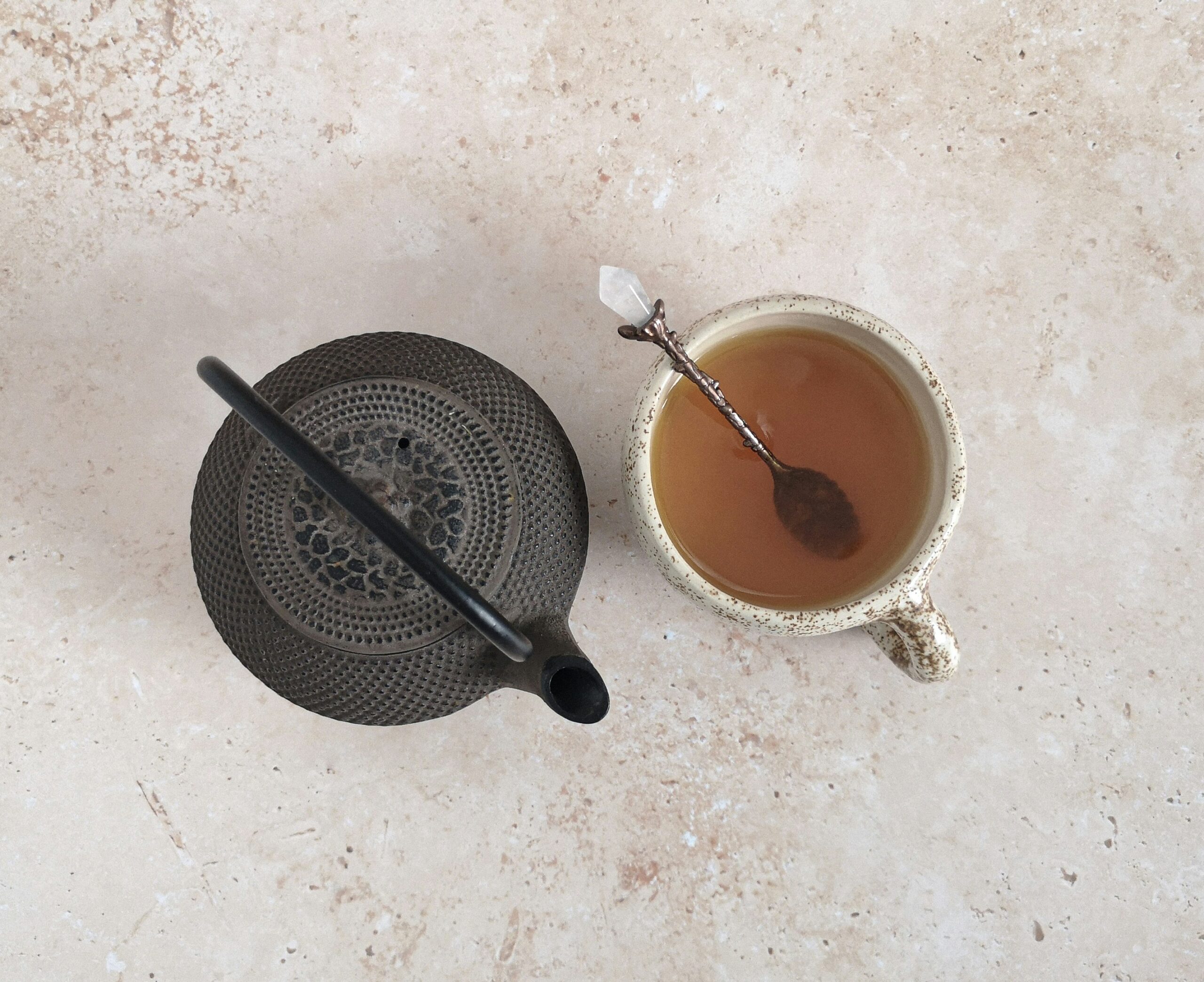
Recovering from a miscarriage is a process that encompasses both the physical healing of the body and the emotional wellbeing of the individual in pregnant women. We explore herbs for miscarriage recovery during this sacred time. It’s a time where the support of loved ones and the guidance of health professionals play a crucial role. In addition to medical care, many women seek out natural remedies to aid in their recovery, exploring holistic approaches to restore their physical and emotional balance. Among these natural remedies or herbal medicines (including those from traditional Chinese medicine), certain herbs have been traditionally used to support the body’s healing after a miscarriage.
Herbs may offer a comforting, gentle way to promote physical recovery and provide support for the emotional stress that can accompany a miscarriage. While the effectiveness of herbs varies from person to person, some have been noted for their potential to help manage pain and discomfort, aid in hormonal balance and support overall wellness during the recovery period. However, it is important for you to consult with a healthcare provider before using any herbal remedies, particularly during such a sensitive time, to ensure they are suitable for your individual health needs and circumstances.
Key Takeaways
- Herbs can play a supportive role in the holistic recovery process post-miscarriage.
- Always consult a healthcare professional before using herbal remedies for recovery.
- The healing journey includes managing physical discomfort and attending to emotional wellbeing.
WHAT ARE WE TALKING ABOUT TODAY?
- Understanding Miscarriage
- Medical Aspects of Recovery
- Managing Pain and Discomfort
- Holistic Recovery Approaches
- Herbs for Recovery
- Diet and Nutrition for Recovery
- Understanding and Monitoring Hormone Levels
- When to Seek Medical Attention
- Prevention and Future Pregnancy Planning
- Lifestyle Considerations Post-Miscarriage
- Frequently Asked Questions
Understanding Miscarriage
When you face a miscarriage, it’s not just a loss of pregnancy; it involves a complex interaction of both emotional and physical experiences. Here’s a glance at the types and symptoms associated with this delicate condition.
Types of Miscarriage
Complete miscarriage: This occurs when all pregnancy tissue is expelled from your uterus. You might experience this naturally, or sometimes medical intervention is required.
- Incomplete miscarriage: If you’ve been through an incomplete miscarriage, it means some pregnancy tissue remains in the uterus, often necessitating medical treatment.
Missed miscarriage: Sometimes, the embryo stops developing, but there are no immediate symptoms to indicate anything is amiss. This is known as a missed miscarriage and can be particularly challenging to detect without an ultrasound.
Blighted ovum: Also referred to as an anembryonic pregnancy, this type is when a fertilised egg attaches to your uterine wall, but an embryo doesn’t develop. Early ultrasound can identify a blighted ovum.
Physical and Emotional Symptoms
Physical symptoms may include vaginal bleeding or spotting, abdominal pain or cramping, and the passing of fluid or tissue from the vagina. These symptoms can vary in intensity and duration.
From an emotional perspective, grief, disbelief, and a gamut of other emotions are completely normal. You’re not alone in these feelings, and it’s important to acknowledge and address them as part of your healing process.
Medical Aspects of Recovery
After a miscarriage, it’s crucial for you to understand the medical steps that aid in recovery and be aware of potential complications that can arise. This knowledge will help you take the necessary precautions and seek the right medical care that may be suitable for your medical condition.
Medical Procedures
Dilation and Curettage (D&C): This surgical procedure may be recommended if you have retained tissue in your uterus following a miscarriage. It involves dilating the cervix and gently scraping the uterine lining to remove tissue. This can help prevent infection and heavy bleeding.
Expectant management: It is an option where you can choose to let the miscarriage process occur naturally without intervention. This approach can take several days or weeks, and you should be closely monitored by your healthcare provider during this time.
Complications After Miscarriage
- Infection: If you develop a fever or notice foul-smelling discharge, these could be signs of an infection. It’s important for you to contact your healthcare provider promptly if you notice these symptoms.
- Heavy Bleeding: While some bleeding is normal, if you experience very heavy bleeding or pass large clots, you need to seek medical attention. This may indicate that not all the miscarriage tissue has been expelled, which might require medical or surgical management.
Remember, your recovery is unique to you, and it’s important to follow your doctor’s advice and attend all follow-up appointments.
Managing Pain and Discomfort
If you’re navigating the recovery from a miscarriage, you might be experiencing a range of physical symptoms such as cramping, abdominal pain, or heavy bleeding. It’s essential to manage these symptoms so you can recover more comfortably.
For cramping and pain relief, consider over-the-counter options such as ibuprofen. This medication can help reduce inflammation and ease the discomfort. Remember to check with your healthcare provider regarding appropriate pain medication, especially if you are dealing with intense cramping.
Using a heating pad on your abdomen may provide a gentle, soothing option for pain. Keep it on a low setting, and avoid direct contact with the skin to prevent burns. The warmth can help relax muscle contractions and lessen pain.
Here are some simple strategies to manage discomfort:
- Rest: Ensure you get plenty of rest. Your body is going through a recovery process, and rest is a key part of healing.
- Hydration: Stay well-hydrated, especially if experiencing bleeding. Drinking plenty of water helps replenish fluids and can aid in recovery.
- Ibuprofen: This pain reliever can help with pain and cramping. Follow the recommended dosage on the packet.
- Heating Pads: Apply a heating pad to the abdomen to soothe cramps and aches.
Remember to seek medical advice if your symptoms escalate or you’re in doubt about the best ways to manage pain and discomfort during recovery. Women’s health is paramount, and professional guidance can offer tailored support according to your needs.
Emotional Support and Grieving
During the aftermath of a miscarriage, it’s normal to experience a rollercoaster of emotions. You may feel an overwhelming sense of loss and grief, coupled with a need for support and understanding. Prioritising your emotional well-being is crucial as you navigate through this challenging time.

Acceptance is a pivotal step in your healing journey. Be kind to yourself and recognise that grieving is a deeply personal process, with no right or wrong way to feel. Here’s a concise guide to help you through:
- Seek Support:
- Reach out to friends and family who understand what you’re going through.
- Join support groups where you can connect with others who have experienced a similar loss. Sharing your story can be unexpectedly therapeutic.
- Grieving Techniques:
- Allow yourself to feel all your emotions, whether they’re sorrow, anger, or confusion.
- Create a ritual or memorial to honour your loss, giving you a sense of closure.
- Herbal Remedies:
- Some individuals find comfort in using herbs like chamomile or lavender, known for their calming effects.
- Discuss with a healthcare professional or a naturopath about herbal options that can support your emotional health during this time.
This period is about gentle healing and seeking comfort in ways that are most meaningful to you. Remember it’s okay to ask for help, and there’s an entire community ready to offer the support you deserve.
Holistic Recovery Approaches
When exploring holistic recovery options after a miscarriage, you might find comfort and healing in the embrace of natural remedies. These approaches often focus on nurturing not only the body but also the mind and spirit.
Acupuncture is one method that may assist with physical and emotional recovery. It’s thought to stimulate certain points on the body to promote healing and relaxation. Remember to seek out a qualified practitioner for your peace of mind.
Taking time for rest is crucial; allow yourself to heal without rushing the process. Your body has undergone a significant event, and adequate rest is key to recovery.
Incorporate into your routine practices that foster a relaxing atmosphere. This might include:
- Yoga: Gentle stretches can aid in calming your nervous system.
- Meditation: Establishing a daily habit may help ease your mind.
- Breathing exercises: They can be remarkable tools for stress relief.
Natural remedies might also play a role in your recovery journey. Certain herbs have been traditionally used to support the body after a miscarriage. However, it’s imperative that you consult with a healthcare provider before trying any herbal supplements to ensure they’re appropriate and safe for your situation.
| Holistic Approach | Description |
|---|---|
| Acupuncture | Encourages healing, targets body’s meridians for balance |
| Rest | Vital for physical and emotional recovery |
| Relaxation | Activities like yoga and meditation to soothe the mind |
| Natural Remedies | Herbal options to potentially aid in recovery; professional consultation necessary |
Keep in mind that each individual’s path to recovery is unique, and what works for one person may not work for another. Listen to your body, and give yourself permission to take the time you need.
Herbs for Recovery
After experiencing a miscarriage, turning to herbs may offer you both physical and emotional support as you recover. Here’s a look at specific herbs that can be sought out for their healing properties during this time.
Herbs to Support Physical Healing
Red Raspberry Leaf: You might find red raspberry leaf tea beneficial for its reputation in toning the uterus and helping to restore your reproductive system. Its nutrients are known to assist in the healing process.
Motherwort: Often recommended for its potential to ease uterine muscle spasms, motherwort could comfort your body as it heals. This herb is traditionally used to reduce anxiety as well, which might be helpful after a miscarriage.
Herbs to Aid Emotional Wellbeing
Ashwagandha: Recognised for its adaptogenic qualities, ashwagandha is a herb that may help your body to manage stress and balance hormones.
Lemon Balm and Chamomile: These gentle herbs can be soothing to the nervous system. A cup of tea with lemon balm or chamomile may calm your mind and aid in alleviating tension or unrest you’re experiencing.
- Healing Herbs: Beyond these mentioned herbs, there’s a variety of healing herbs that can strengthen your body’s healing and your emotional resilience post miscarriage. Always consult a healthcare provider before starting new herbal remedies.
RELATED: Best Chamomile Tea: A Gentle Path To Wellness
Diet and Nutrition for Recovery
After experiencing a miscarriage, your body needs proper nourishment to recover. It’s important to focus on nourishing foods that provide the essential vitamins and minerals for healing.

Prenatal vitamins continue to be beneficial after a miscarriage. They are packed with necessary nutrients that might have been depleted and can aid in your recovery. Consider talking to your healthcare provider about continuing your prenatal vitamin regimen.
Including alfalfa in your diet may be beneficial due to its vitamin K content, which is essential for blood clotting to improve blood flow. This can be particularly helpful if you’re dealing with post-miscarriage bleeding.
Nettles are another herb acclaimed for their rich mineral content and a good dose of vitamins A, C, K, and calcium. Having nettles in the form of tea might soothe the body and supply it with much-needed nutrients during recovery.
Here’s a brief guide to help you with your diet:
- Whole Grains: Oats, brown rice, and barley can provide you with sustainable energy.
- Lean Protein: Eggs, fish, and chicken can help repair body tissues.
- Iron-Rich Foods: Red meat and leafy greens can combat iron deficiency.
- Calcium-Rich Foods: Yogurt and milk support bone health.
- Fruits and Vegetables: A wide variety offers vitamins and antioxidants.
Additionally, staying hydrated is crucial. Water, herbal infusions, and broths can all contribute to keeping you well-hydrated. Remember, while herbs like alfalfa and nettles can offer health benefits, it’s essential to consult with a health professional regarding their use, particularly if you have existing health concerns or are taking medications.
Understanding and Monitoring Hormone Levels
After experiencing a miscarriage, monitoring your hormone levels, especially progesterone, is crucial for recovery and future pregnancy planning. Progesterone, known as the “pregnancy hormone,” supports the uterine lining and prepares your body to nourish a developing pregnancy.
Progesterone Levels Post-Miscarriage:
- Before ovulation: 2 to 28 nmol/L
- During mid-cycle peak: 48 to 422 nmol/L
- After menopause: Below 0.64 nmol/L
Why Monitoring Matters:
- Identify imbalances: Imbalances can affect your menstrual cycle and overall reproductive health.
- Guide treatment: Your doctor may prescribe supplements or medication if levels are low.
How to Monitor:
- Blood tests: Regular blood tests can track your progesterone levels.
- Charting cycles: Keep a diary of your menstrual cycle, noting any irregularities.
Remember to consult with your healthcare provider for personalised advice. They can guide you through hormone testing and interpreting results to ensure optimal care during your recovery period.
When to Seek Medical Attention
If you’re experiencing a miscarriage or are in the recovery phase, it’s essential to be aware of when you should seek medical attention. Your health and safety are paramount, so pay close attention to your body’s signals.
Spotting and Bleeding: Light spotting can sometimes occur, but if you notice heavy bleeding or the passing of large clots, it’s crucial to contact your healthcare provider immediately. Sudden increases in blood loss, especially if accompanied by dizziness or weakness, warrant urgent medical care.
Pain: While some cramping can be normal, if you’re dealing with severe pain that doesn’t subside with rest or over-the-counter pain relief, it’s time to reach out to a professional. Pain that’s sharp, persistent, or located in one particular area should not be ignored.
- Fever: A fever can indicate an infection, which requires prompt medical evaluation. If your temperature rises above 38°C, or if you experience chills, it’s a sign to get in touch with your doctor without delay.
- Foul-Smelling Discharge: Any discharge that has a strong, unpleasant odour suggests an infection. Maintaining personal hygiene is important, but if you encounter this symptom, make an appointment immediately.
Remember, miscarriage and its aftermath can affect everyone differently. It’s okay to seek support and ask for help. If you’re ever uncertain about a symptom or how you’re feeling, it’s better to err on the side of caution and consult a healthcare professional. Taking care of yourself is your top priority.
Prevention and Future Pregnancy Planning

When you’re ready to plan for a future pregnancy after a miscarriage, it’s natural to feel a mix of hope and caution. One of the essential steps is to understand how certain herbs can support your reproductive health.
- Folic Acid: Start by ensuring you’re getting enough folic acid, which is crucial for preventing birth defects.
- Vitex: Also known as Chaste Tree Berry, Vitex may help balance hormones necessary for maintaining a pregnancy.
Considering contraception, it’s a pivotal tool in planning. It gives you the control to time your pregnancy, which can be especially important after experiencing a miscarriage.
Here’s a brief guide on what to prioritise:
- Consult a Healthcare Professional: Before using any herbal remedies, speak with your healthcare provider, especially concerning a threatened miscarriage or if you’ve had an ectopic pregnancy.
- Healthy Lifestyle: Embrace a healthy diet and exercise. Reducing stress can also be beneficial.
If a molar pregnancy was a part of your history, it’s pivotal to follow up with your doctor to ensure all pregnancy tissue has been removed and that your hCG levels have returned to normal before trying again.
In summary, take care of your health, consider herbal support with professional guidance, and use contraception to plan your pregnancy journey with confidence.
RELATED: Herbs Not Safe For Pregnancy: A Must-Read Guide For Expectant Mums
RELATED: Is Milk Thistle Safe During Pregnancy? Unpacking The Facts
Lifestyle Considerations Post-Miscarriage
After experiencing a miscarriage, your body and mind require time to heal. Rest is integral for recovery; make sure to allow yourself ample time to sleep and engage in relaxing activities. It’s not unusual to feel a range of sensations and weakness as your body recovers, so listen to what it’s telling you and rest accordingly.
Surrounding yourself with a supportive network is crucial. Don’t hesitate to reach out to friends, family, or support groups who can provide emotional comfort and understanding. If you’re feeling particularly unwell, consulting a healthcare provider is important to ensure your wellness and address any concerns.
Incorporating gentle physical activity into your routine can help improve your mood and aid in physical recovery. Here are some activities that might help:
- Walking: A short, daily walk in fresh air can be rejuvenating.
- Yoga: Gentle yoga classes can help relieve stress and promote physical strength.
- Meditation: Regular meditation may help manage grief and focus on healing.
Remember to nourish your body with a balanced diet rich in nutrients to support recovery. Here’s what you can include:
- Protein: Critical for repair and recovery; include lean meats, beans, and nuts.
- Iron: Essential to replenish after a loss; good sources are red meat, lentils, and spinach.
- Vitamin C: Helps with iron absorption and tissue repair; found in citrus fruits and broccoli.
By focusing on self-care and adopting a healthy lifestyle, you give yourself the space and time needed to move through the healing process. Remember, it’s okay to take things at your own pace.
Frequently Asked Questions
Exploring natural and holistic paths to recovery can be comforting after the stress of a miscarriage. Here are some frequently asked questions to guide you through the process.
What natural remedies can support physical recovery following a miscarriage?
After a miscarriage, certain herbs like Vitex (Chaste Tree) may support your body’s natural healing process. However, it’s crucial to consult with a healthcare provider before starting any herbal remedies such as herbal tea.
What can I do to speed up my recovery after experiencing a miscarriage?
To expedite recovery, focus on gentle self-care practices and adequate rest. Ensuring you have a nutrient-rich diet and staying hydrated can also play a significant role in helping your body recover more swiftly.
How can I rebalance my hormones naturally after a miscarriage?
Herbal supplements like evening primrose oil may assist in balancing hormones naturally. Incorporating foods that help stabilise hormones, such as flaxseeds and soy products, into your diet can also be beneficial.
Are there any herbal supplements recommended for emotional wellbeing post miscarriage?
Herbs such as St. John’s Wort are commonly used to support emotional wellbeing. However, always seek professional guidance before using herbal supplements, as they can interact with other medications.
What lifestyle changes may aid in recuperation after a miscarriage?
Introducing gentle physical activity, such as yoga or walking, and practicing mindfulness or meditation can aid your overall wellbeing. Prioritising sleep and managing stress are other important lifestyle changes that may aid in your recovery.
Can dietary adjustments help with healing after a miscarriage?
A balanced diet rich in iron and vitamin C can help your body heal after a miscarriage. Consuming plenty of leafy greens and fruits like oranges and strawberries can be particularly beneficial.



Comments +